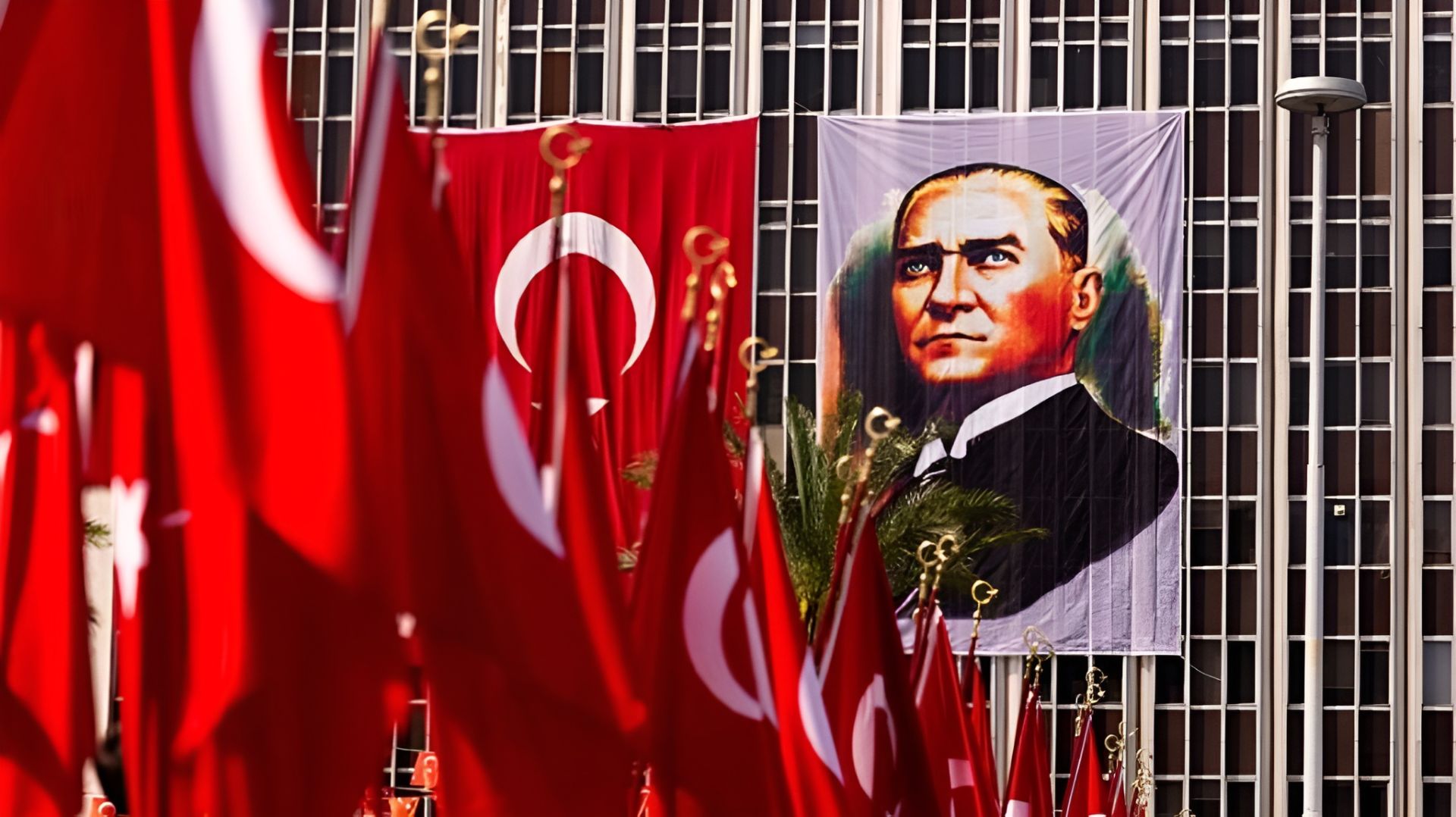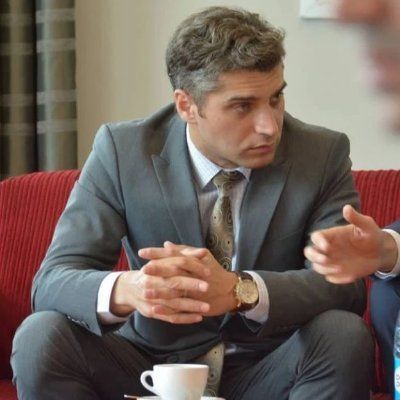Türkiye at 102: Century of resilience, renewal, and emerging power

When the Republic of Türkiye was proclaimed on 29 October 1923, few could have foreseen the magnitude of its transformation over the next century. Born from the ashes of the Ottoman Empire, the new republic stood as a symbol of resilience and renewal, i.e., a modern, secular, and independent state under the visionary leadership of Mustafa Kemal Atatürk. One hundred and two years later, Türkiye stands not only as a pivotal power in its own right but as a nation whose influence reaches from Europe to the Middle East, from the Caucasus to the shores of Africa.
The early decades of the Republic were marked by sweeping reforms that reshaped every aspect of life. Atatürk’s revolutionary policies sought to secularise governance, modernise education, and redefine national identity. The introduction of civil law and many other reforms reflected his determination to align Türkiye with modern Western ideals. Ankara became the new capital, a symbolic shift from empire to republic, and the nation embarked on an ambitious journey of state-building and national consolidation.
Despite economic hardships and political turbulence in its formative years, Türkiye managed to assert its sovereignty and neutrality through two world wars, demonstrating remarkable diplomatic prudence. By the mid-20th century, Türkiye had cemented itself as a key regional actor with aspirations of joining the Western security architecture.
In 1952, Türkiye joined the North Atlantic Treaty Organisation (NATO), a turning point that marked its definitive alignment with the Western bloc during the Cold War. Its strategic geography, straddling Europe and Asia, controlling the Bosporus and Dardanelles, made it indispensable to NATO’s southern flank. As the only Muslim-majority member of the alliance, Türkiye became a bridge between civilisations, playing a critical role in intelligence, defence, and counterterrorism cooperation.
The country’s partnership with the United States and Europe deepened throughout the latter half of the 20th century. Though relations have occasionally been tested by differing views on regional policy, Cyprus, or EU accession, Türkiye’s role as a stabilising force has remained constant. Today, Ankara continues to serve as a vital ally for the West, not only in military terms but in energy security, migration management, and regional diplomacy.
New era under President Erdoğan and new vision for global Türkiye
Since Recep Tayyip Erdoğan first came to power in 2003, Türkiye
has undergone a profound political, economic, and geopolitical
transformation. Initially serving as Prime Minister and later as
President, Erdoğan pursued policies that combined economic
liberalisation with assertive diplomacy and a renewed sense of
national pride.
Under his leadership, Türkiye’s economy expanded dramatically in
the early 2000s, fuelled by infrastructure investment, industrial
growth, and a dynamic private sector. Major projects, from
Istanbul’s new airport to transcontinental energy pipelines, became
symbols of ambition and progress. Türkiye has also diversified its
foreign partnerships, pursuing a multi-vector policy that maintains
ties with NATO while deepening relations with Russia, Central Asia,
and the Middle East.
Erdoğan’s concept of a “strong and independent Türkiye” reflects a belief that the nation’s destiny lies in regional leadership. Ankara’s proactive foreign policy, sometimes described as “strategic autonomy”, has seen Türkiye emerge as a key player in Syria, Libya, the South Caucasus, and beyond.
Türkiye’s long and costly struggle against terrorism has defined much of its modern security policy. The PKK (Kurdistan Workers’ Party), designated as a terrorist organisation by Türkiye, the United States, and the EU, has waged an insurgency since the 1980s. Successive governments have faced the daunting task of balancing internal security with human rights and social cohesion.
In recent years, the Turkish Armed Forces have launched numerous operations both domestically and across the border to dismantle terrorist strongholds and prevent infiltration. These include counterterrorism missions in northern Iraq and Syria, aimed not only at the PKK but also at Daesh (ISIS) and its affiliates. Türkiye’s fight against terror has also had an international dimension; it remains one of the leading NATO members in countering radical networks and preventing the spread of extremism in the Middle East.
Türkiye’s role as a mediator has become increasingly visible in regional crises. Ankara has brokered ceasefires, supported humanitarian corridors, and facilitated dialogue between warring parties, notably in Syria and between Russia and Ukraine. Its pragmatic diplomacy, balancing principle with realpolitik, has earned Türkiye a reputation as both a peacemaker and a power broker.
In the volatile Middle East, Türkiye stands as a force for de-escalation and stability, leveraging its military strength, historical depth, and cultural ties to mediate conflicts and promote reconstruction. The country’s humanitarian outreach, particularly through the Turkish Cooperation and Coordination Agency (TİKA) and the Disaster and Emergency Management Authority (AFAD), underscores its growing influence as a soft power in the Muslim world.
Azerbaijan and Türkiye: One nation, Two states
Among Türkiye’s most enduring alliances is its bond with Azerbaijan, a relationship rooted in shared history, language, and faith. The motto “One Nation, Two States”, coined by Azerbaijan’s National Leader, Heydar Aliyev, captures the essence of this brotherhood. From the early years of Azerbaijan’s independence, Türkiye has been its staunchest supporter both politically, economically, and even militarily.
This fraternity reached its zenith during the Second Garabagh War in 2020, when Türkiye stood firmly beside Azerbaijan as it restored its territorial integrity. Joint military exercises, defence cooperation, and energy partnerships, including the Baku–Tbilisi–Ceyhan oil pipeline and the Trans-Anatolian Natural Gas Pipeline (TANAP), have reinforced this alliance as a cornerstone of regional stability.
Beyond geopolitics, the Türkiye–Azerbaijan partnership represents a vision of Turkic unity, now institutionalised through the Organisation of Turkic States (OTS), which embodies cooperation in trade, culture, technology, and security across the Turkic world.
As Türkiye celebrates its 102nd anniversary, it does so with the confidence of a nation that has weathered storms and emerged stronger. From Atatürk’s secular modernism to President Erdoğan’s assertive realism, the Republic has shown an extraordinary capacity for adaptation. Its strategic weight, as a NATO ally, regional stabiliser, and bridge between East and West, continues to grow.
With its vibrant democracy, dynamic economy, and unwavering commitment to sovereignty, Türkiye stands as a testament to the endurance of a nation that, time and again, has turned adversity into opportunity. The Republic’s journey from 1923 to 2025 tells not just a story of transformation but of vision, one that continues to shape the course of a region and the destiny of a people.
Here we are to serve you with news right now. It does not cost much, but worth your attention.
Choose to support open, independent, quality journalism and subscribe on a monthly basis.
By subscribing to our online newspaper, you can have full digital access to all news, analysis, and much more.
You can also follow AzerNEWS on Twitter @AzerNewsAz or Facebook @AzerNewsNewspaper
Thank you!

